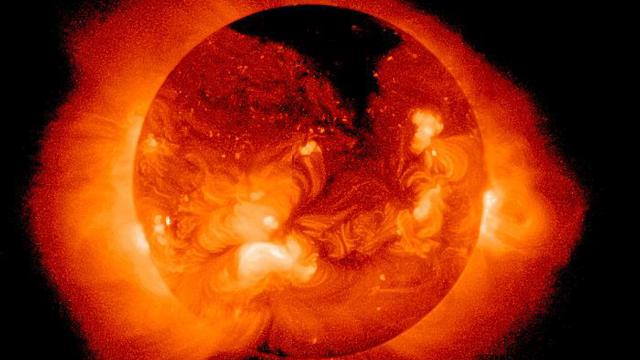It’s one thing to send a rover to Mars. It’s another to send a biologically fragile human body. We don’t know much about how space will affect us — and recent findings involving mice suggest it could change our brains in unexpected ways.
Would the trip to Mars damage astronauts indelibly? And will certain factors predispose some candidates to better survive the journey, and the hazardous high-energy particles including silicon and iron? These are questions that scientists like Amelia Eisch, a professor at Department of Psychiatry at the University of Texas Southwestern Medical Center at Dallas, are in the process of answering. At the Society for Neuroscience’s annual meeting in Chicago on Wednesday, Eisch presented a poster about her NASA-funded research (subtitle: One Small Step for Mousekind) studying how space radiation affects the brains of mature and adolescent mice.
Why was she so interested in the age of the mice? Well, most previous study about how space radiation used rodents that were young — the equivalent to a teenage human. But, as Eisch explained yesterday, NASA doesn’t have any plans to send teens to Mars (god help us), so why are we studying “teenaged” mice? Instead, her lab set up a test with mice the equivalent age of actual NASA astronauts, along with adolescents and control groups. They exposed them to radiation created by NASA’s accelerator at Brookhaven National Labs, and tested how well they did on memory and learning tasks before and afterwards.
Their findings, which are now being peer-reviewed for publication, were surprising. While the teenage radiation-exposed mice performed worse than non-exposed mice on an easy and a challenging task, the adult mice actually improved on the challenging task, which required them to distinguish between two different environments, a.k.a. “pattern separation.” The radiation-exposed adult mice were able to discriminate faster than their non-exposed counterparts.
But that’s not necessarily a good thing. It means they got better at one specific task that asked them to discriminate between two environments, using the hippocampal region of their brains. There are plenty of studies proving that this radiation has many harmful effects, and there are many reasons that they might have done better at this particular task. As Eisch pointed out over email, the improvement may have come from their brains’ new reliance on another system that supports these kinds of tasks. Or perhaps it could be an altered pattern of neurons or mossy cells. As Eisch commented, if these mice are great at discriminating, will they be terrible at making generalizations?
In other words, until they can study these effects more deeply, we just won’t know. More than anything, her findings prove that the very ways we study the potential side effects of space travel still need to be closely examined.
NASA might be sending humans to Mars in 2030 — but in the meantime, there’s some serious science to do.
Image: NASA
